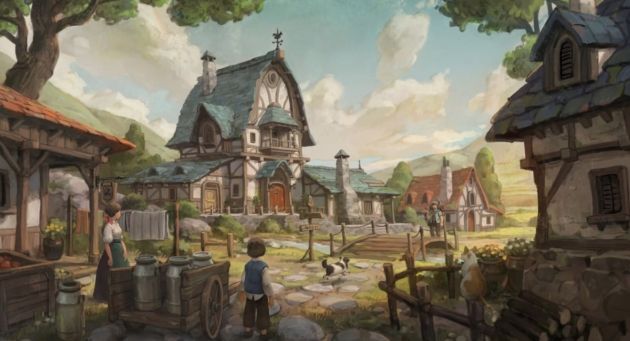Difference between revisions of "Village"
Tao alexis (talk | contribs) |
Tao alexis (talk | contribs) |
||
| Line 1: | Line 1: | ||
| + | [[File:Village.jpg|right|630px|thumb]] | ||
'''Villages''' are clustered communities of [[Humanoid|humanoid]] settlement, larger than [[Hamlet|hamlets]] but smaller than [[Town|towns]]. They have populations ranging from 201 to 1,000 persons. Independent villages are located in [[Type-4 Hex|type-4 hexes]], but villages may occur as adjunct neighbourhoods related to both towns and [[City|cities]]. Some villages may also be [[Settlements|settlements]], regardless of the [[Hex Type (infrastructure)|hex type]]. | '''Villages''' are clustered communities of [[Humanoid|humanoid]] settlement, larger than [[Hamlet|hamlets]] but smaller than [[Town|towns]]. They have populations ranging from 201 to 1,000 persons. Independent villages are located in [[Type-4 Hex|type-4 hexes]], but villages may occur as adjunct neighbourhoods related to both towns and [[City|cities]]. Some villages may also be [[Settlements|settlements]], regardless of the [[Hex Type (infrastructure)|hex type]]. | ||
__TOC__ | __TOC__ | ||
Revision as of 20:13, 17 April 2022
Villages are clustered communities of humanoid settlement, larger than hamlets but smaller than towns. They have populations ranging from 201 to 1,000 persons. Independent villages are located in type-4 hexes, but villages may occur as adjunct neighbourhoods related to both towns and cities. Some villages may also be settlements, regardless of the hex type.
Contents
Villages contain various fixed dwellings and facilities, as well as vegetable patches, orchards, green spaces and animal enclosures. Settlement villages may possess minor fortifications but most villages don't. Villages built upon a water course may include a ford, bridge or ferry, or may be a transshipment point. Usually a riverboater can be hired if no regular service across the river is available.
Most occupants of a village work upon surrounding fields, walking out to them in the morning and returning at night. Authority is shared between one or more wealthy squires and a village council, the latter composed of 3-12 experienced, elder persons. Better than 9 of 10 villages possess a church or temple, with the cleric acting as an arbiter and advisor to others.
